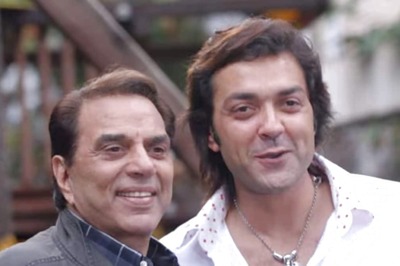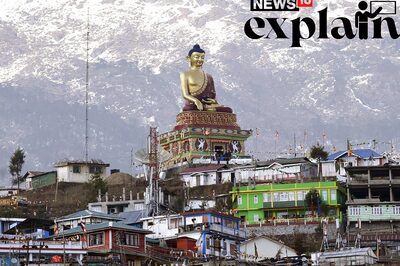
views
Islamabad: Five years into a war on terrorism, abiding distrust of Pakistan among allies and neighbours was laid bare in the past few days through a series of accusations against its military secret service.
On Saturday, Mumbai Police said the Inter-Services Intelligence (ISI), along with Lashkar-e-Taiba, branded a terrorist group by the United States, was behind bomb blasts that killed 186 people and wounded hundreds in Mumbai on July 11.
President Pervez Musharraf had already spent the latter days of a lengthy overseas trip fending off Afghan and British insinuations that members of his security apparatus were covertly supporting the Taliban insurgency raging in southern Afghanistan.
Coming just two weeks after Musharraf managed to get India to resume a peace process that New Delhi froze after the Mumbai blasts, the timing of the allegation against the ISI is bad.
The agency is well-used to being blamed, though the West had been happy to enlist its support in a covert war against the Soviet occupation of Afghanistan during the 1980s, just as it is now being used in the war on terrorism.
"Ever since I can remember, whenever there is something on, whenever a blast takes place here, or something in Afghanistan, there is the September 11, all sorts of things, so ISI is always in the eye of the storm," said Lieutenant-General Asad Durrani, a former head of the ISI.
Despite becoming a crucial ally of the West, despite making a foreign policy U-turn in 2001 to abandon support for a Taliban government hosting al-Qaeda, and despite starting peace talks with India almost three years ago, doubts remain about whether Pakistan's spies are still playing a double game.
Afghanistan's President Hamid Karzai pointedly warned of the dangers in a remark last week in the United States that snakes cannot be trained to bite other people.
"Karzai has been making such allegations all along and India too. It is just coincidence that these latest allegations have come at the same time although they are not new," Kamal Matinuddin, a retired general and security analyst, said.
Accused in the past of using the Taliban to extend Pakistani influence in Afghanistan, and supporting jihadi groups to run a proxy war against Indian forces in Kashmir, the ISI is suspected by many security analysts of wanting to keep those options open.
Firstly, analysts say there are doubts in the Pakistani establishment over whether India would ever cede ground in the dispute over Kashmir. Secondly, there are doubts about Karzai's durability, coupled with fear of being encircled because of growing Indian influence in Kabul.
Pakistan has nevertheless established its credentials in the war on terrorism having arrested more than 700 al-Qaeda suspects, including several of Osama bin Laden's top lieutenants.
Both the United States and Britain have thanked Pakistan for helping to foil plots.
In August, a joint operation by all three countries thwarted a conspiracy to cause explosions aboard airliners bound for US cities from London.
With that to the ISI's credit, Musharraf mounted a strong defence of his secret service in the face of a leaked report commissioned by Britain's Ministry of Defence, written by a consultant with a military intelligence background.
It said Pakistani agents were aiding the Taliban. The British government distanced itself from the report saying the views were not its own -- though some British officers serving with NATO in Afghanistan have spoken of their belief insurgents are coming over from Pakistan.
"You will be brought down to your knees if Pakistan does not cooperate with you," Musharraf told the BBC on Saturday before leaving London for home on the last leg of a three-week trip.
"Remember my words, if ISI is not with you and Pakistan is not with you, you will lose in Afghanistan."
British perceptions weren't helped by the adjournment of a terrorism trial in mid-September, when a defendant, Omar Khyam, refused to answer questions from his lawyer, claiming the ISI had visited his family in Pakistan and he feared for their safety.




















Comments
0 comment